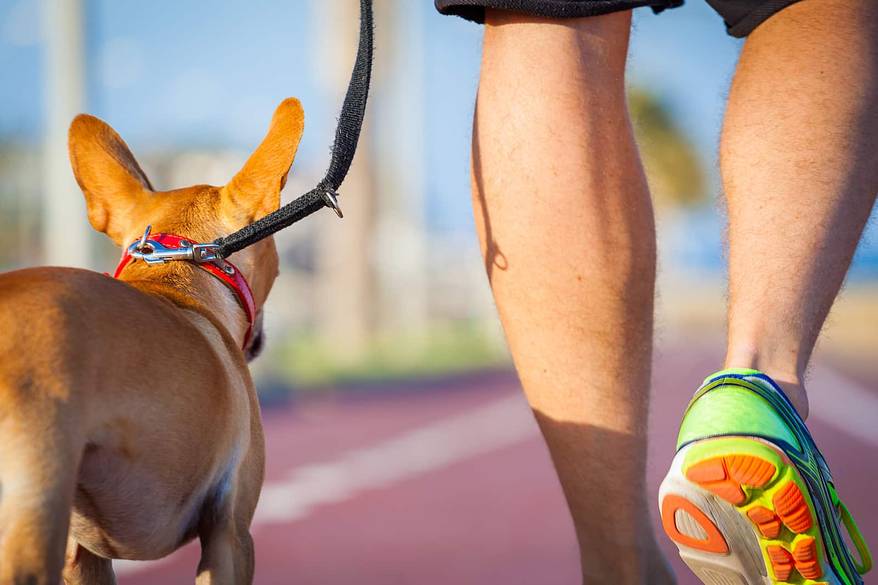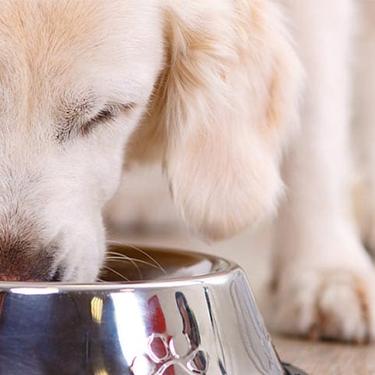
-
Find the right food for your pet
Take this quiz to see which food may be the best for your furry friend.
Find the right food for your pet
Take this quiz to see which food may be the best for your furry friend.
Featured products
 Adult Healthy Cuisine Roasted Chicken, Carrots & Spinach Stew Dog Food
Adult Healthy Cuisine Roasted Chicken, Carrots & Spinach Stew Dog FoodDelicious roasted chicken paired with tender vegetables in a succulent stew
Shop Now Adult 7+ Perfect Digestion Chicken, Whole Oats & Brown Rice Recipe Dog Food
Adult 7+ Perfect Digestion Chicken, Whole Oats & Brown Rice Recipe Dog FoodScience Diet's breakthrough nutrition supports ultimate digestive well-being & healthy microbiome for dogs age 7+
Shop Now Small & Mini Savory Stew with Chicken & Vegetables Dog Food
Small & Mini Savory Stew with Chicken & Vegetables Dog FoodA delicious complement to the nutrition of Science Diet Small & Mini 7+ dog food
Shop NowFeatured products
 Adult 7+ Tender Tuna Dinner Cat Food
Adult 7+ Tender Tuna Dinner Cat FoodWith delicious chunks in a decadent gravy
Shop Now Adult 7+ Senior Vitality Chicken & Vegetable Stew Cat Food
Adult 7+ Senior Vitality Chicken & Vegetable Stew Cat FoodImproves Everyday Ability to Get Up & Go
Shop Now Adult Savory Entrée Can Variety Pack Cat Food
Adult Savory Entrée Can Variety Pack Cat FoodPrecisely balanced nutrition with the delicious taste of savory minced chicken to help fuel the energy needs of cats during the prime of their life
Shop Now -
Dog
- Dog Tips & Articles
-
Health Category
- Weight
- Food & Environmental Sensitivities
- Urinary
- Digestive
- Joint
- Kidney
-
Life Stage
- Puppy Nutrition
- Adult Nutrition
- Senior Nutrition
Cat
- Cat Tips & Articles
-
Health Category
- Weight
- Skin & Food Sensitivities
- Urinary
- Digestive
- Kidney
-
Life Stage
- Kitten Nutrition
- Adult Nutrition
Featured articles
 Do Dogs and Cats have Belly Buttons?
Do Dogs and Cats have Belly Buttons?Learn whether cats & dogs have belly buttons like humans, what the function is, and if there are any health concerns associated with it.
Read More Does My Pet Hate Me?
Does My Pet Hate Me?Learn tips for bonding with your pet if you've ever thought, 'My dog doesn't like me, or 'Why do I have a standoffish cat?'
Read More Why Are Dogs and Cats So Cute?
Why Are Dogs and Cats So Cute?If waggy puppy dog tails and furry kitten yawns make you swoon, you're not alone. Why are cats so cute? And, dogs too! Let's find out!
Read More -


Do you have a weight loss goal? If so, you've probably heard that the best way to stick to your health plans is to have a weight-loss buddy. Your dog may be the perfect choice for a fitness pal, especially if he could stand to lose a few pounds himself. Not sure what a healthy dog should look like in the first place? Read on for everything you need to know about training with your pup.
Signs Your Dog Is Overweight
If you notice your dog has been less active lately, it may be a sign that he is becoming overweight or lacking in energy. Other signs of a pudgy pup include having to loosen his leash or collar, shortness of breath and no longer seeing an obvious "waist" behind his ribs. However, you should always talk to your veterinarian about what a healthy weight should be for your dog. Don't rely on the internet or a friend to tell you if your pet should be shedding pounds. There are genetic and environmental reasons a dog may become overweight, so your vet is the best person to determine if you should start your pup on an exercise routine or a new feeding plan. Some health conditions, such as heart disease, can also be marked by exercise intolerance, notes Wag!, so you should keep careful track of your dog's behavior and symptoms.
Even if your dog doesn't look overweight or still seems to be fairly active, it's a good idea to confirm that he is at a healthy weight during your annual vet checkup. You and your vet can also review the type, amount, and frequency of the food you are giving your pup. If your dog is a healthy weight or just starting to get a little tubby, now is the best time to act! Once your dog becomes overweight or obese, some of the related health issues may be irreversible.
Unfortunately, the Association for Pet Obesity Prevention (APOP) found that up to 54% of dogs were at risk for weight-related disorders in 2016. The health risks for just a few extra pounds include kidney disease, joint problems, skin diseases and shortened life expectancy. But the good news is taking steps toward establishing a regular fitness routine can help your fluffy companion live a longer, happier life. Remember that two pounds overweight may not seem like a lot to you, but to smaller dogs it could be the same as 20 pounds to you. It's best to not think about your dog's weight in pounds, but rather his body condition score. This is a more accurate way to tell if your dog is overweight and accounts for differences in breed types.
Finding Ways for Your Dog to Join in Your Weight Loss Goals
Including your dog in your weight loss activities can help boost your motivation to meet your health goals. The extra effort required to make a dog-friendly exercise routine might also spur you to plan out your workout ahead of time, since you'll have to figure out places and activities that will let you and your pooch be active together. Scheduling exercise can make it a more integral part of your life and increase the likelihood that you'll follow through, according to Shape. Over time, your dog will pick up on your exercise routine and give you a nudge when it's time to get busy burning calories.


Tasty Tips
The Benefits
Men's Health and other fitness gurus tout the benefits of staying motivated with a workout partner, but that buddy doesn't have to be human! Spending time with your pup has holistic benefits far beyond your waistline. Dogs have such a good influence on us that they serve as therapy and service animals for people who are blind or deaf, have limited mobility, or need emotional support for conditions such as post-traumatic stress disorder (PTSD), according to The Atlantic. Whether your dog is a working pup or just a pet, he's your lifelong companion. Staying focused on losing weight and eating better so you can be a more energetic, healthy pet parent can be a huge personal motivator.

Running and working out is also just another form of playtime for your dog, and when you increase playtime, both you and your pet will burn calories. However, there is another perk to increasing playtime: lower stress levels. Stress triggers the release of the hormone cortisol, which causes the body to store fat deep in the abdomen, notes Prevention. Reducing stress can help you to prevent weight gain before it even happens.
Whether it is adding an extra walk each day, creating an obstacle course in your backyard for you and your dog, or just finding a local puppy play group to attend together, more time playing as a pair will likely lead to better overall health for you and your furry friend.
Don't Be Afraid to Try Something New
Swimming, yoga, and running are all great ways to burn calories and build muscle, but would you be more likely to try them if you could include your dog? Many places in the United States now have dog water parks, "doga" (yoga with your dog, described here by the Huffington Post), or dog-friendly 5K races.
When it comes to improving your eating habits, talk to your vet about healthy snacks that might be okay for you and your dog to enjoy together (maybe in different forms, like an apple for you and some chicken and apple treats for him). You and your pup should also increase your water intake and stay hydrated, especially during warm weather. If stress or boredom makes you snack, throw your pup a chew toy before you head to the fridge — and see if your craving is still there after an hour of romping around with your pet.
Making the commitment to lose weight and eat better (and getting your dog to do the same) can be a bit overwhelming at first, but having your pet as your weight loss buddy should make things more fun and purposeful. Have fun walking, running, and fetching toward your best results!


Chrissie Klinger is an educator, writer and mother of two children, three dogs and three cats. Her dog Jake loves sitting on her lap every chance he gets! She enjoys living an active and eco-friendly lifestyle in rural Pennsylvania.
Related products
Related articles

Learn the the dangers of feeding your dog chocolate, which types are most dangerous, and what to do if you discover that they have consumed chocolate.

Learn how today's wet dog food blends have gotten a face lift, and how you'll provide your dog the nutrition he needs in the form he loves.

Proper nutrition for your pregnant or nursing dog is vital to her and her puppy's health. Learn what you should do provide her with the proper nutrients.

Learn about choosing the right dog food to help ensure your adult dog will receive the correct balance of nutrition.

Put your dog on a diet without them knowing
Our low calorie formula helps you control your dog's weight. It's packed with high-quality protein for building lean muscles, and made with purposeful ingredients for a flavorful, nutritious meal. Clinically proven antioxidants, Vitamin C+E, help promote a healthy immune system.
Put your dog on a diet without them knowing
Our low calorie formula helps you control your dog's weight. It's packed with high-quality protein for building lean muscles, and made with purposeful ingredients for a flavorful, nutritious meal. Clinically proven antioxidants, Vitamin C+E, help promote a healthy immune system.

